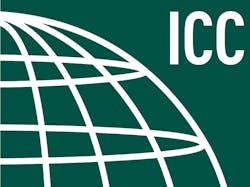ICC Praises New Infrastructure Funding, Support for Codes
PRESS RELEASE
Washington DC, November 15, 2021 – Today, The President signed into law the Infrastructure Investment and Jobs Act, bipartisan legislation which will make available $1.2 trillion in funding for infrastructure programs across the energy, water, transportation, and buildings sectors. Applauded by the International Code Council, within this law are significant resources to help promote energy conservation and community resilience through the development, adoption, and effective implementation of building codes.
Significant resources are provided to promote energy conservation and electric grid stability through the development, adoption, and effective implementation of building energy codes, like the International Energy Conservation Code (IECC) and the International Green Construction Code (IgCC). The bill provides $500 million in State Energy Program funding and $550 million in Energy Efficiency and Conservation Block Grant funding, which states and local governments can use to support the adoption and implementation of energy codes. It further directs the U.S. Department of Energy (DOE) to conduct a study on codes and standards for stationary and mobile energy storage systems.
To help ensure jurisdictions updating their energy codes have the resources necessary to effectively implement them, $225 million in competitive grants are made available through DOE for the implementation of building energy codes. This aligns with the goal of the Code Council’s “Code on a Mission” challenge, which aims to have over a third of the U.S. population covered by the 2021 International Energy Conservation Code (IECC) by the end of 2023. The DOE has found that these activities can reduce annual energy costs from varying levels of code compliance by an average of about 45%.
The Code Council strongly supported this federal dedicated investment in energy code implementation and worked to ensure these resources can support complementary water conservation and community resilience efforts.
The Infrastructure Investment and Jobs Act supports community mitigation through $500 million to capitalize resilience revolving funds under the Energy Efficiency and Conservation Block Grant STORM Act and a $1 billion investment in the Building Resilient Infrastructure and Communities (BRIC) program. Both programs provide resources for the adoption and implementation of hazardresistant building codes. Mitigation projects through BRIC are made more competitive through applicants’ adoption and enforcement of resilient codes and standards.
To improve drinking water quality, the law provides $15 billion for lead service line replacement projects.
“This Infrastructure Investment and Jobs Act is a significant investment in the safety and resiliency of the built environment,” said Dominic Sims, CBO, Chief Executive Officer, International Code Council. “Its commitment to the effective implementation of building energy codes is unprecedented and reflects years of work by the Code Council and other stakeholders. The Code Council looks forward to working with the Administration and its members to ensure that that the promise of these investments is fully realized at all levels of government.”
The Code Council is currently assembling a summary of key provisions and plans to provide those, along with additional resources to its membership so that local jurisdictions can appropriately leverage the funding. For more information on the Code Council’s energy and hazard mitigation resources, please visit https://www.iccsafe.org/energy and https://www.iccsafe.org/codessave.
###
About the International Code Council
The International Code Council is the leading global source of model codes and standards and building safety solutions. Code Council codes, standards and solutions are used to ensure safe, affordable and sustainable communities and buildings worldwide.
